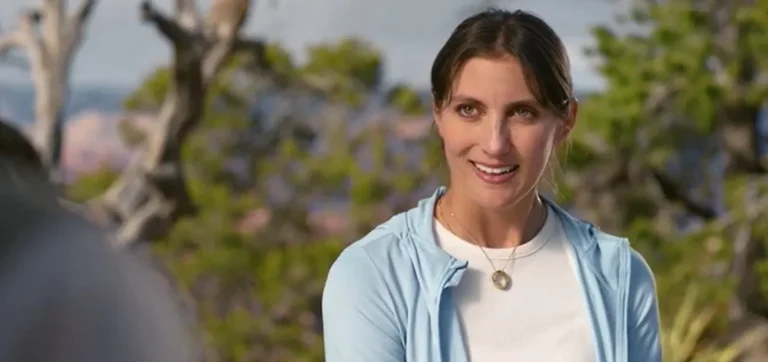For most of my life, I made the mistake of believing Superman was boring. Since getting into comics, I’ve found that icons like Batman, Superman, and Spider-Man never appealed to me as much as characters in their shadows—The Flash, the Green Lanterns, the Guardians of the Galaxy, and many others.
I believed Supergirl was a more interesting character with more depth, as she was the one to witness the destruction of their homeworld of Krypton, and is less willing to trust and believe in humanity. It felt like more compelling stories could be crafted using her, such as the first volume of her “New 52” series by Michael Green, Mike Johnson, and Mahmud Asrar. Bias aside, when it was announced as “Superman: Legacy” in January 2023, “Superman” (2025) instantly became one of my most anticipated films, largely because of James Gunn’s involvement.
Gunn’s “Guardians of the Galaxy” was the second MCU film I watched, after “Winter Soldier,” and I have not disliked any of the superhero films he has made since. It is down to James Gunn that I became a fan of Marvel before they burned through my goodwill over the last few years, so him being in charge of DC, and writing and directing the first “Superman” film in over a decade, was enough to have me eagerly awaiting his interpretation of ‘Truth,’ ‘Justice,’ and the ‘American Way,’ or a ‘Better Tomorrow,’ depending on which version of the phrase you prefer. That said, I was concerned that his style of wacky humour would clash with the earnestness I had gathered was part of Superman’s character in his best portrayals.
The benchmark by which all these films are judged is the 1978 “Superman,” directed by Richard Donner and starring Christopher Reeve, but in an act of comic book film heresy, I have never seen it. I will, though. One day. The only reference I have for a standalone Superman film is “Man of Steel,” a film I have seen once and was underwhelmed by. The Snyderverse trilogy as a whole never worked for me, although I have yet to watch the Snyder Cut of “Justice League.” But I will. One day. To be fair to Henry Cavill, he looks the part and was never given a proper shot in the role of Kal-El/ Clark Kent, but the word I most use to describe his performance across three films is ‘wooden.’
With hindsight, I can say Snyder missed the mark on what makes Superman the enduring icon he has become. A character does not endure in pop culture for nearly ninety years without capturing something within the general public. The film’s marketing team knew this, as their campaign was, in my opinion, confident yet restrained.
All they needed was the logo and a few notes from John Williams’ iconic theme to get started, and the first poster released, of Superman flying upwards in an array of bright lights, showed how simple yet effective it could be. Then there were the trailers, which did a fantastic job at keeping the film’s plot under wraps whilst sending my excitement into the stratosphere. With the film on the horizon, I finally decided to go hunting for some Superman comics to read, to find out if I could see what so many others see in him.
I started with one of the greats: “All-Star Superman” by Grant Morrison and Frank Quitely, one of the most acclaimed comic books ever written, and everything began to click into place. I wouldn’t call it the greatest thing I’ve ever read, but it’s fantastic—capturing both Superman and his relationships with his supporting cast perfectly. It’s also clear that Gunn drew heavily from this story for his script, though he leaves out the element of Superman’s gradual death from solar overexposure.
This is not just because the art used in the film’s announcement was Frank Quitely’s cover of the first issue; what Gunn succeeded in capturing was the feel of Superman: the hope and kindness he inspires with his innate goodness and compassion for every life.
Not long after, I also read the first three volumes of Joshua Williamson and Jamal Campbell’s current run, which had a promising start before being bogged down in company-wide events and squeezing more secret history into the world. In an industry that always reverts characters to their status quo, I expected the plot of Lex Luthor gifting Superman ‘Supercorp’ to end with them being mortal enemies again, despite many efforts to make him more morally grey over the last ten years.
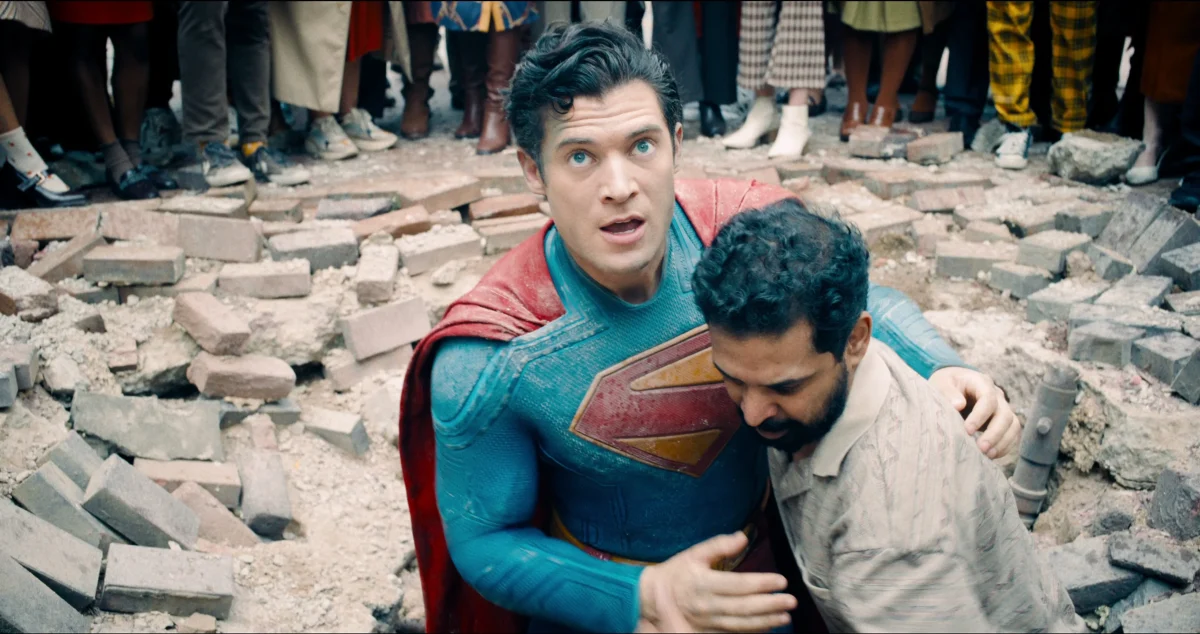
When “Superman” (2025) was finally released in July, the screening I attended was special, as it was my first official press screening, and it was held at the Cineworld in Leicester Square. Catching my most anticipated film of the year several days early, on one of the UK’s largest cinema screens, felt like a dream come true.
However, as much as I liked the film, I could not help but fall into the trap of the impossible expectations I had placed on it. A lot came down to the idea I created of what it would be, rather than what it actually was. It was in no means bad. On a five-star scale, I rated it a four, but it contained flaws I was surprised to find in a James Gunn film, especially off the back of “Guardians of the Galaxy Vol. 3,” which knew when to be funny and when to have its emotions hit like a freight train.
The humour in “Superman” seemed in line with recent MCU films, quipping and making fun of the usual superhero tropes in a too self-aware way, even though it had moments that it took deadly seriously. There has been much discussion about the scene of Mali’s death, and that it was undermined by Lex Luthor’s comment, but that is one example I would push back on, as it displays Luthor’s complete disregard for life. He is the antithesis to Superman, and honestly, the strongest villain of Gunn’s superhero films, Guardians 3’s High Evolutionary, a close second.
There were other flaws, too. I was surprised by the inconsistent quality of the visuals; the direction they went with depicting Superman’s flight led to mixed results. If the film were animated, I think I would not have this issue, but because it is live action, it does not look quite right on occasion. The escape in the proton river could have been visually stunning, but the restless camera work made it difficult to follow. The script, too, felt uneven, weighed down by exposition-heavy dialogue that rarely landed as intended.
As the opening entry in a new cinematic universe, it needed to establish a status quo, and while moments of worldbuilding worked—like Guy Gardner casually eating cereal in a diner without drawing attention—these were offset by clumsy, heavy-handed remarks about Krypton and Boravia.
One line that particularly stands out is Lois Lane’s ‘there are people there,’ delivered as the rift nears her old Metropolis neighborhood in the third act. It’s a weak line, and Rachel Brosnahan struggles valiantly but unsuccessfully to make it work. Cut it, and nothing changes—we see the people a few seconds later anyway. It’s entirely redundant. That said, the cast overall is excellent, with no one feeling out of place. The film may throw too much at the viewer, but in doing so, it also hints at the history and depth of this universe, teasing what future installments might uncover. Everything feels alive, as though we’re watching a single week in the life of Superman.
But the biggest talking point my friend and I had after the screening was its messaging. In a world where empathy is mocked and apathy rewarded, “Superman” frames kindness as ‘punk rock’—and it never feels cringe-inducing or false. This ties directly into one of the film’s central conflicts: Boravia’s invasion of Jarhanpur and Superman’s unwavering value for life. He leaps in to stop the invasion committed by an American ally in the Middle East and save lives. Obviously, this comes across as a critique of the genocide Israel is enacting in Gaza in front of the entire world.
When asked, Gunn has denied this, talking more about Russia’s invasion of Ukraine, which does line up with the film’s production. The script was written in late 2022 and early 2023, before the film went into production in early 2024. There’s enough in the portrayal of Boravia’s President Ghurkos to read him as a lampoon of both Putin and Benjamin Netanyahu.
Since the entire conflict is bankrolled by LuthorCorp, the film stands as a sharp condemnation of corporate greed and American meddling in the Middle East—territory Gunn has never shied away from critiquing in his DC works. In “The Suicide Squad,” the fictional country of Corto Maltese was home to US government experiments where its citizens were used as test subjects.
In Hollywood, where people such as Susan Sarandon have been blocklisted for speaking out against genocide and in support of the Palestinian people, perhaps Gunn thought his job as head of DC would not protect him, and he already has experience with being unfairly fired in politically motivated campaigns.
At the end of the day, this is all speculation; we will never know for certain. A film has no control over the time and context it is released in, but one of its strengths for now is how it feels tuned into the key issues of our time, as it is making bold statements, while other studios like Marvel skirt around real-world issues. For Superman, one death is too many.
When grilled on his actions by Lois Lane, he yells, ‘People were going to die!’ in frustration. “Like the audience, she struggles to fully accept that someone as powerful as Superman could use his abilities for good. This feels like a deliberate response to the recent trend of dark or morally ambiguous Supermen in media—from “The Boys” and “Invincible” to DC stories like the “Injustice” games and the Snyderverse films. In the third act, Superman even confronts an evil clone of himself, Ultraman, as he races to stop the rift Lex Luthor has created from destroying Metropolis.

After seeing the film for the first time, I picked up “Superman: Birthright” by Mark Waid and Leinil Francis Yu, an updated take on Superman’s origin published between 2003 and 2004. The story clearly seems to have influenced Gunn’s film, even though he bypasses the traditional origin narrative. Once again, it’s that contrast Superman embodies—the hope and love he inspires versus Lex Luthor’s hatred. At the time of writing, I’m reading another Superman story: “Absolute Superman” by Jason Aaron and Rafa Sandoval, part of DC’s initiative to reimagine its most iconic heroes.
In this take, Kal-El was old enough to witness the destruction of Krypton, and now sees the same overconsumption and societal hubris on Earth, and we follow his struggle to believe he can save humanity. Ironically, the Krypton of the Absolute Universe feels more in line with the suggested history of Krypton in the DCU. This reinvention is still in its early days, but it is a promising start, one that takes a darker yet still hopeful exploration of Superman and has a lot to say about corporate exploitation, overreliance on AI, and the struggle to stay hopeful in the modern world.
A month and a half later, I went to see the film again, going with two friends who knew next to nothing about Superman. All the flaws were still there, but something had shifted in my mind. Instead of judging the film by what I had wanted it to be, I was able to see it for what it was, and in that regard, the problems were no longer a deal breaker.
The warm feeling I experienced intermittently on first viewing was one I now experienced for the entire film. It was one of those moments of pure cinematic magic, carrying you away from reality for two hours and leaving you feeling uplifted. That, I think, is the film’s true power—its understanding of Superman: his extraordinary ability to inspire hope in others.
I wasn’t the only one who felt this—Gunn’s take on Superman helped my friends truly understand the character. They appreciated that the first glimpse of him shows him injured, making it clear that he can be harmed—and even killed—by more than just Kryptonite. For all his power, he is not invulnerable; he remains profoundly human.
Similarly, the reveal that Superman’s parents sent him to conquer humanity, a controversial change from the comics, worked for them, as it added a layer of uncertainty to his character and beliefs he had to confront and overcome throughout the film. Having gone with them to see “The Fantastic Four: First Steps” and left underwhelmed a few weeks prior, “Superman” also succeeded in bringing new fans into the DCU, eager to see where the world goes next, as the MCU stumbles towards its inevitable reboot.
The DCU is still in its infancy as a franchise, with “Supergirl” slated as the next theatrical release next summer. Milly Alcock appears to be fantastic casting, though her brief cameo at the end of Superman was slightly surprising. Additionally, the first poster hints at a tone that differs from the source material—Tom King and Bilquis Evely’s excellent “Supergirl: Woman of Tomorrow.”
Despite the reservations, I am excited to see where it goes, alongside the recently announced “Man of Tomorrow,” releasing July 9th, 2027, with Gunn, David Corenswet, and Nicholas Hoult portraying the art of Superman and Lex Luthor in his green armour, drawn by incredible DC artists Jim Lee, Jorge Jimenez, and Mitch Gerads.
Like most people, I did not expect the next film to be a team-up between those two, but after thinking it over, it makes a lot of sense. Perhaps we will finally get to see Brainiac as a live-action villain, one too powerful for Superman or Lex to beat on their own. It is clear for the moment that Superman will be the central pillar of Gunn’s DCU as we wait for news of Batman and Wonder Woman to round out the trinity of this universe. And for now, as we bask in the light of Superman’s triumphant return to the forefront of pop culture, I cannot wait to see more of this fantastic character.


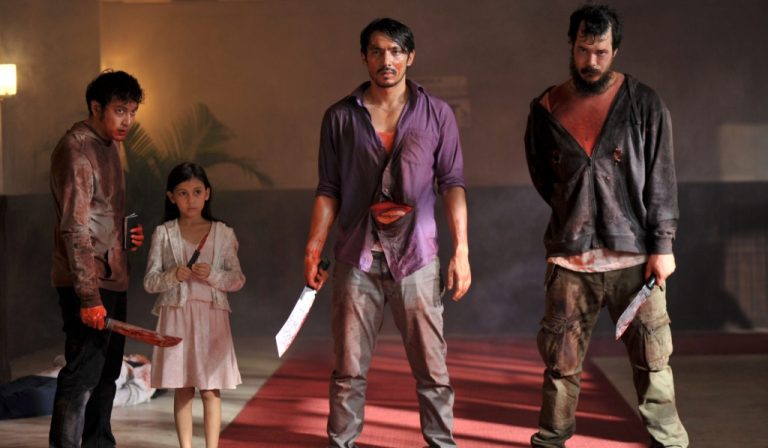
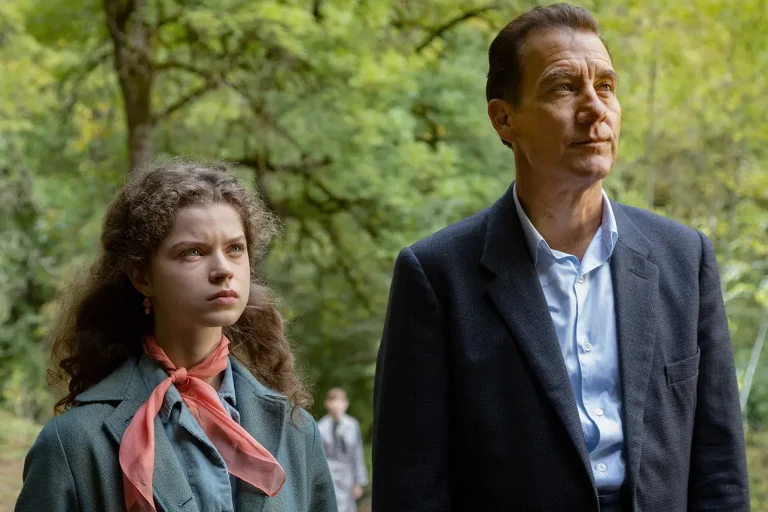
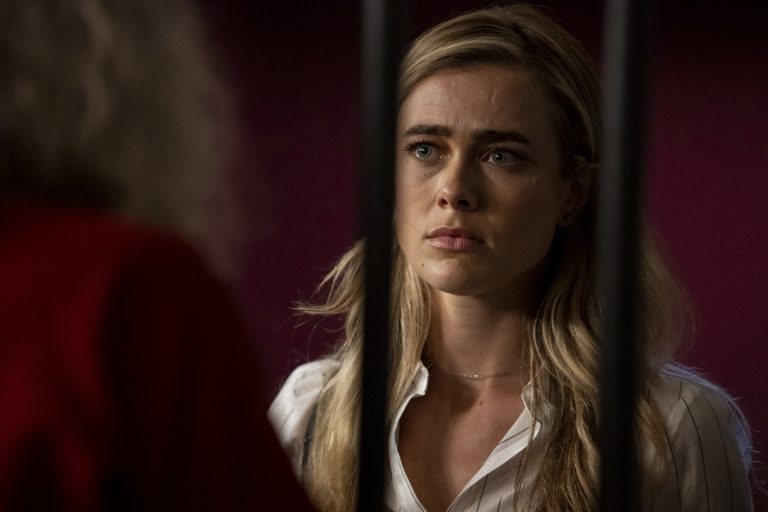
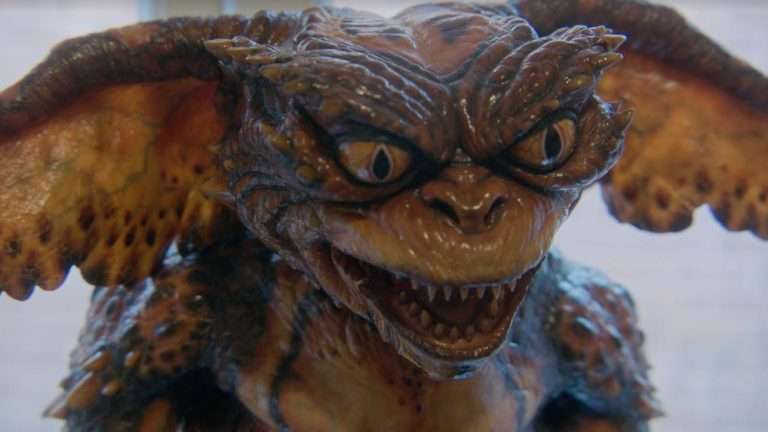
![Lucy in the Sky [2019]: ‘TIFF’ Review – Never Takes Off](https://79468c92.delivery.rocketcdn.me/wp-content/uploads/2019/12/Lucy-in-the-Sky-768x512.jpg)
